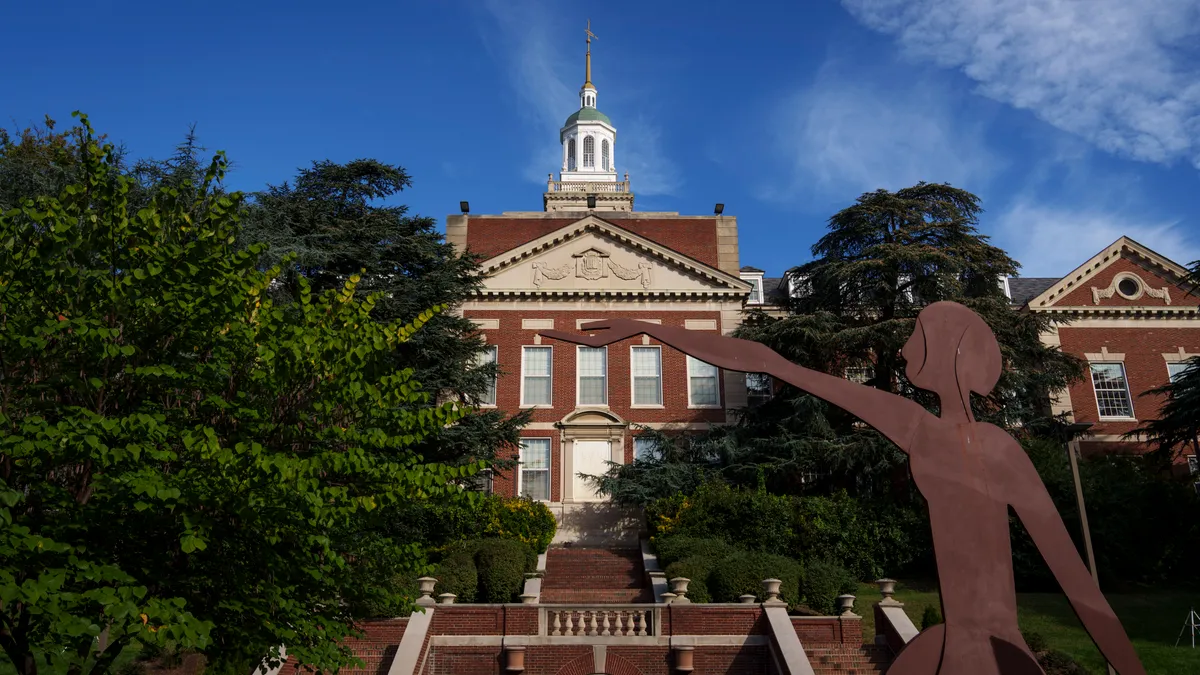Dive Brief:
- Faced with shrinking enrollment and an endowment battered by the Great Recession, leaders at Wheelock College in Massachusetts announced this week they are considering a merger with the much larger Boston University, located approximately a mile away. Wheelock President David J. Chard said it could be a good fit; Wheelock specializes in clinical training for educators, while BU specializes in research, according to WBUR.
- Part of the issue is that graduates of Wheelock enter teaching professions, including early childhood education, which have low annual wages. Though Wheelock is more affordable than many schools, it can leave graduates with as much as a year's worth of salary in loans to repay. Additionally, it can be difficult for cash-strapped alumni to substantively contribute to the school's endowment.
- Chard hopes Wheelock can retain its name, with the campus remaining open, with students at the school being enrolled into BU and the faculties between the two schools being combined. Students currently enrolled in Wheelock expressed relief that there was a possibility their school would remain intact for years to come.
Dive Insight:
The prognosis for tuition-dependent smaller schools like Wheelock may be fairly bleak, due to the lack of a sizeable endowment to fall back on, and according to a recent report, some education experts worry that the falling tuition revenue coupled with a rise in rates will force many schools to close.
In order for higher ed to survive overall, there must be increased collaboration between institutions and a decision to share costs and maximize resources. This doesn't always mean merger; the idea can extend to when and how to combine specific administrative or extracurricular functions; Bucknell University and Rutgers University announced in June they were combining their dual publishing departments, due to the strengths of each particular department. Administrators reticent to commit to a merger or consolidation, even in the face of dire financial straits, do not necessarily have to merge an institution wholesale for it to be profitable and beneficial to both parties.







